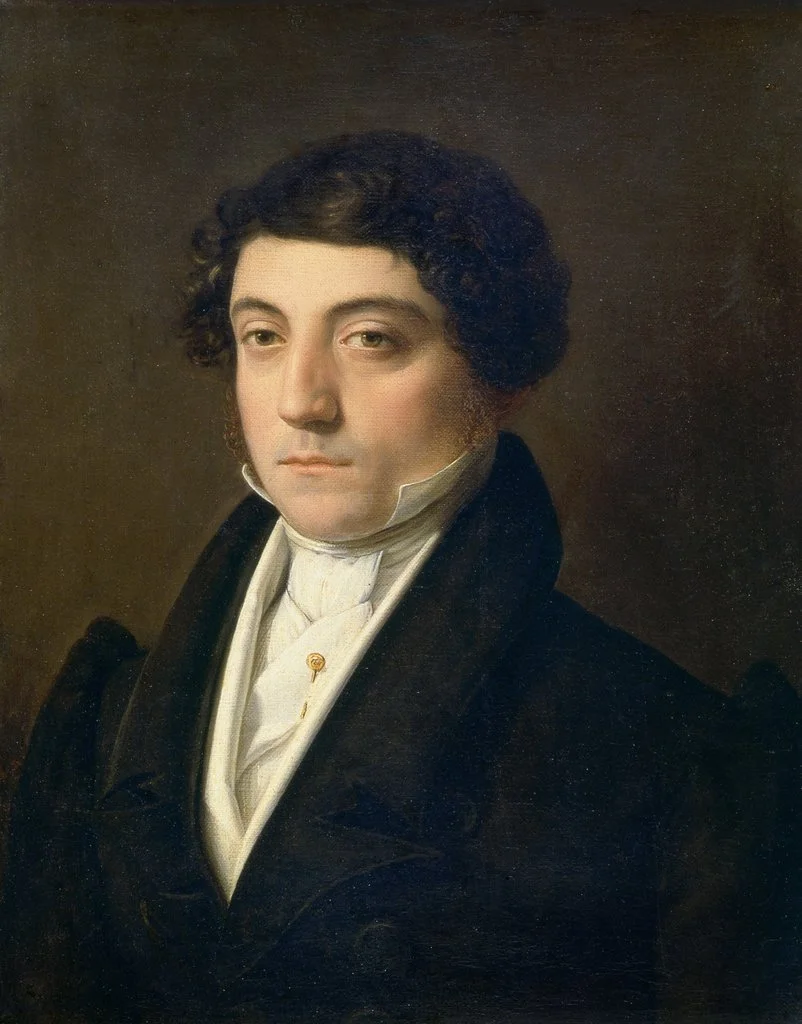Gioachino Rossini & Marilyn Horne - "L'italiana in Algeri"
L'Italiana in Algeri (The Italian Girl in Algiers) is an operatic dramma giocoso in two acts by Gioachino Rossini to an Italian libretto by Angelo Anelli, based on his earlier text set by Luigi Mosca. It premiered at the Teatro San Benedetto in Venice on 22 May 1813. The music is characteristic of Rossini's style, remarkable for its fusion of sustained, manic energy with elegant, pristine melodies.
Rossini wrote L'Italiana in Algeri when he was 21. Rossini stated that he composed the opera in 18 days, though other sources claim that it took him 27 days. Rossini entrusted the composition of the recitatives as well as the aria "Le femmine d'Italia" to an unknown collaborator. The opera is notable for Rossini's mixing of opera seria style with opera buffa. The overture is widely recorded and performed today, known for its distinct opening of slow, quiet pizzicato basses, leading to a sudden loud burst of sound from the full orchestra. This "surprise" reflects Rossini's early admiration for Joseph Haydn, whose Symphony No. 94 in G major, "The Surprise Symphony", is so named for the same shocking and semi-comic effect.
The work was first performed at the Teatro San Benedetto, Venice on 22 May 1813. It was a notable success and Rossini made progressive changes to the work for later performances in Vicenza, Milan and Naples, during the following two years.
The opera was first presented in London at His Majesty's Theatre on 28 January 1819 and on 5 November 1832 in New York. It fell somewhat out of favour as the 19th Century progressed, but notable performances were presented from the 1920s in "Turin (1925), Rome (1927) and London (1935)" and it has been revived frequently since World War II with many successful productions. In the 21st century, Rossini’s opera continues to be performed regularly. One of the most noted productions was the Metropolitan Opera House with Levine as the conductor and Marilyn Horne as the Lead. It was incredible
Marilyn Horne (born January 16, 1934) is an American mezzo-soprano opera singer. She specialized in roles requiring beauty of tone, excellent breath support, and the ability to execute difficult coloratura passages. She is a recipient of the National Medal of Arts (1992) and the Kennedy Center Honors (1995). She has won four Grammy Awards.
For many years, Horne was associated with the Australian soprano Dame Joan Sutherland in their performances of the bel canto repertoire. They first performed together in a concert version of Vincenzo Bellini's Beatrice di Tenda at The Town Hall in Manhattan in February 1961. This performance was so successful, it was repeated twice at Carnegie Hall. In 1965, they were paired again in a performance of Rossini's Semiramide with the Opera Company of Boston, and sang in a joint concert on October 15, 1979, which was telecast as "Live from Lincoln Center".
Horne made her debut at the Royal Opera House in October 1964 as Marie in Wozzeck. Her La Scala debut was as Jocasta in Stravinsky's opéra-oratorio Œdipus rex on March 13, 1969. Another of Horne's breakthroughs occurred that same year during a performance of Rossini's Le siège de Corinthe at La Scala, when Horne received a remarkable mid-act seven-minute ovation.[citation needed] Horne made her debut at the Metropolitan Opera in 1970 as Adalgisa in Bellini's Norma with Sutherland in the title role. She thereafter appeared regularly at the Met, opening the 1972/1973 season as Carmen. A great success there was in Meyerbeer's Le prophète, in John Dexter's production. In 1984, she sang the title role of Handel's opera seria Rinaldo (directed by Frank Corsaro), the first Handel opera ever performed at the Met.
Although best known for her bel canto and opera seria roles, Horne also sang much American music, both contemporary music by composers such as William Bolcom, and traditional popular songs. She can be heard on the soundtrack of the 1961 film Flower Drum Song singing "Love, Look Away" and she sang the role of Lady Thiang on the Philips recording of The King and I starring Julie Andrews and Ben Kingsley. She had previously sung in the women's chorus for the 1956 film version of The King and I.
Horne was married from 1960 to 1979 (separated 1974) to the conductor Henry Lewis, with whom she maintained a home in the Echo Park neighborhood of Los Angeles for many years, and with whom she had a daughter, Angela. Horne's mother initially had misgivings that the interracial marriage would have a negative impact on Horne's career, saying, "Be his mistress, for God's sake, not his wife", but soon reconciled with the couple.
In 1983, she published (with co-writer Jane Scovell) a candid autobiography, My Life, and a continuation volume, Marilyn Horne, The Song Continues, appeared in 2004.
Horne received many honors during her career. A New York Times article by Robert Jacobson, editor of Opera News, in celebration of the Met's 100th anniversary in 1983, listed the hundred greatest singers who had ever performed at the house and included Horne, the only one still actively singing at the time. She was awarded Yale University's Sanford Medal.
So today, with beauty of tone all around me, I choose Gioachino Rossini’s "L'italiana in Algeri" featuring Marilyn Horne as my light up the sky, let your eyes be lanterns, let your voice be a beacon, song for a, breath in beauty, find your footing, step carefully, Thursday.
